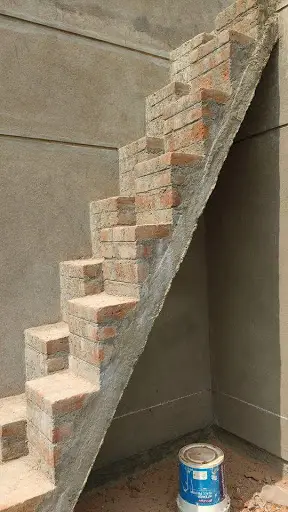(1) Stone is stronger and more durable than brick and for public buildings; it is decidedly more suitable than brick. It reflects strength in every inch of it. It is in tune with nature. Its color improves and looks more serene with age.

On the other hand, brick is an artificial product made as a copy of stone. It is flimsy material and plastering is only a camouflage for its defects.
(2) Stone is water proof. On the other hand, Brick absorbs moisture and with dampness certain salts rise in the walls from the ground and cause disintegration of bricks.
Especially brick should not be allowed to come in contact with urine or sewage and in such places it must always be covered with cement plaster or any other protective coat.
(3) Brick offers greater facility for ornamental work in plaster as a rough shape can first be given to it by means of any tool. This is not so in case of stones.
(4) Plaster does not stick so well to stones as it does to brick.
(5) On account of the regular shape and uniform size of brick, a proper bond can be obtained with comparative ease.
(6) Due to the handy size of brick, brick masonry can be more rapidly constructed than stone masonry.
(7) Brick wall requires a fixed quantity of mortar and even with careless masons, the regular shape of the brick considerably reduces the possibility of hollows being left in the body of the wall. This is not so with some stone walls.
(8) It is possible to build brick walls of any thickness e.g., 4 1/2 in, 3 in, 9 in, 13 1/2 inch etc. Whereas, the minimum thickness of ordinary stone wall is 15 in. Stone walls of a smaller thickness than 15 in, have to be constructed with properly dressed stones, which involves a comparatively high cost.
(9) Brick does not absorb as much heat as stone does. So, brick is more fire resistant than stone.











